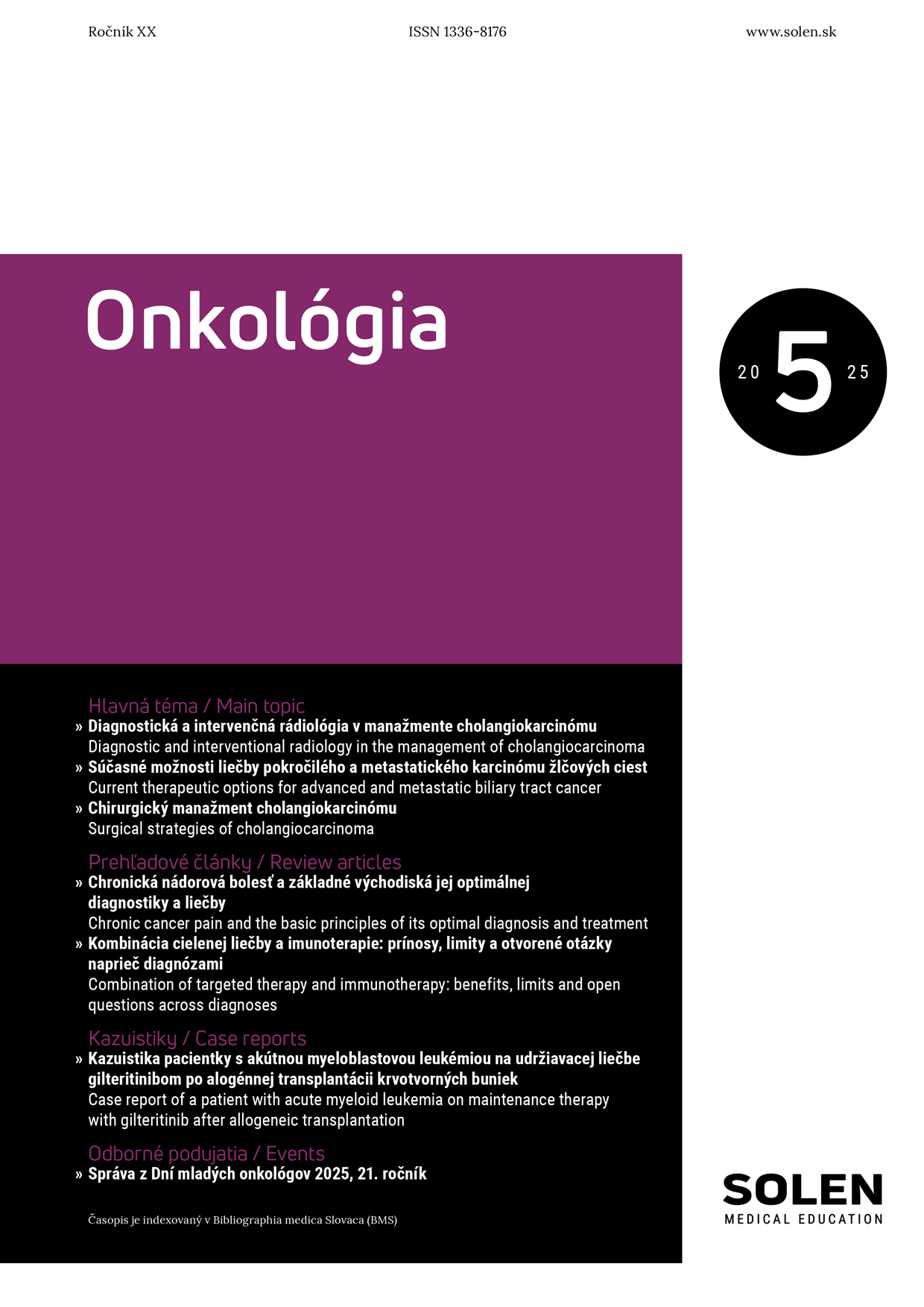Onkológia 6/2021
Update of treatment options in myelodysplastic syndrome
Myelodysplastic syndrome (MDS) is a group of clonal hematopoetic disorders resulting from damaged hematopoetic stem cell that leads often to marrow dysplasia and subsequently to peripheral cytopenia in one or more cell lines. The prognosis varies from mild chronic anemia to severe pancytopenia and rapid progression to acute myeloblastic leukemia (AML). Due to the significant heterogeneity of MDS in elderly patients predominantly, it is necessary to adapt the treatment strategy to disease´s risk, which is guided by various validated tools: e.g. according to the revised international prognostic scoring system; IPSS-R, as well as the comorbidities and preferences of patient. In lower risk patients, the main goal of treatment is to decrease the need of blood transfusions and improve the quality of life, in higher risk group, the goal is to delay the transformation to AML. Allogenic hematopoietic stem cell transplantation is the only potentially curative treatment option, it is associated with significant morbidity and mortality and is not indicated in most patients with lower risk MDS. The aim of this article is to summarize the currently available treatment options for MDS and to point out new treatment approaches.
Keywords: myelodysplastic syndrome, pathogenesis, anemia, luspatercept

















